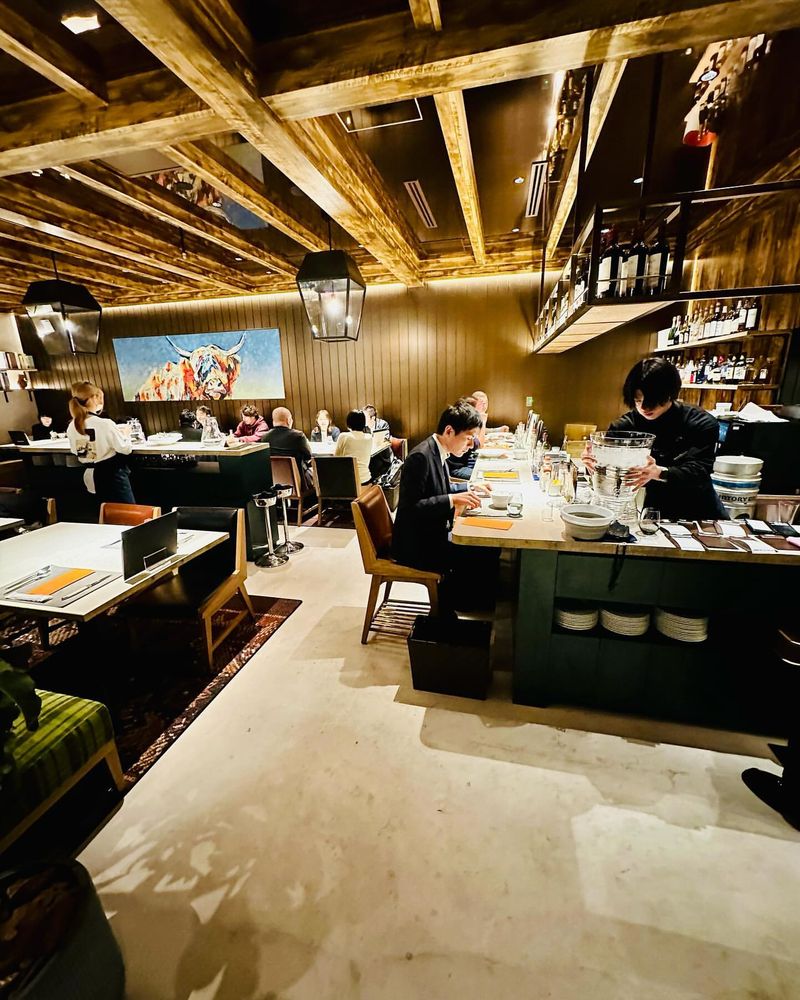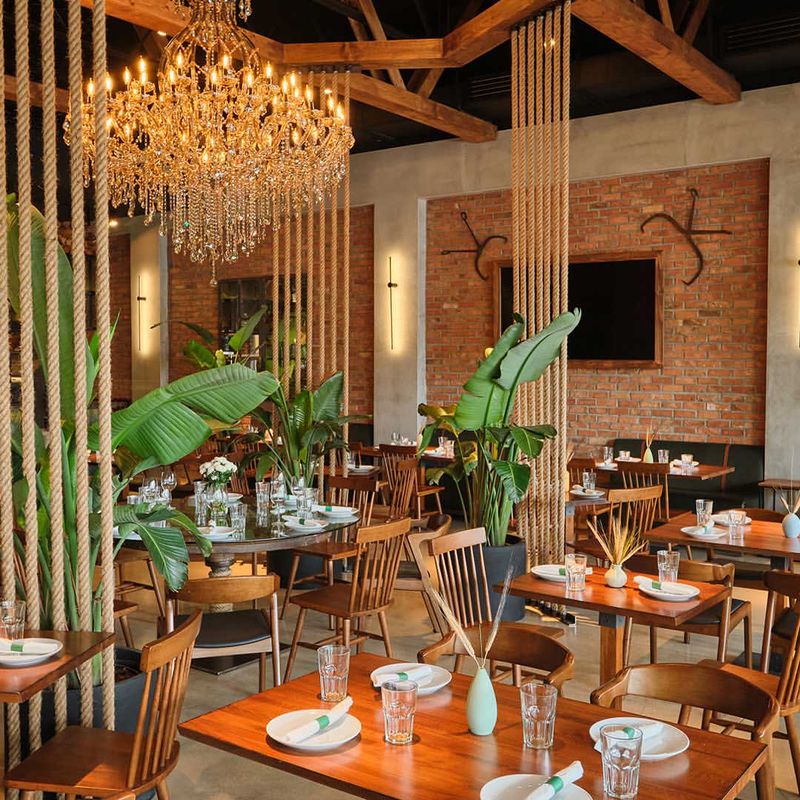Tipping at restaurants can be a bewildering experience, especially when you want to be fair yet economical.
I know, you’ve been there – the check arrives and you’re suddenly a mathematician. Here’s how you can navigate this delicate dance.
From service quality to cultural norms, I’ll guide you through the maze of tipping dilemmas. Let’s explore what and how you should consider those extra bucks that make all the difference to someone’s day.
1. Service Quality
If the service was delightful, then a generous tip might be in order. But what if the service was just average? Where does one draw the line? Quality of service is paramount in deciding how much to tip.
When your waiter goes above and beyond, you feel appreciated and cared for. However, if they forget your extra ranch dressing three times, you might reconsider. Remember, tipping is your way of saying ‘good job’ or ‘could be better’ without using words.
2. Cultural Norms
Though tipping is customary in many places, it’s not universal. If you’re in Japan, you might just offend someone by tipping. Tipping practices vary widely around the globe. Knowing the local customs can save you embarrassment and money.
Hence, it’s crucial to research before dining abroad. In Europe, service charges are often included, so an extra tip is just an add-on. A generous tip in one country could be seen as a bribe in another. Be informed, be respectful, and adjust your tipping accordingly.
Trust me, your wallet and your conscience will thank you.
3. Bill Size
How big is the bill? This question looms large when calculating tips. If you’re splurging on a luxurious meal, a small percentage translates to a hefty tip. Conversely, a modest meal might warrant a smaller cash thank you.
The size of the bill often sets the stage for your tipping decision.
It’s a simple math equation with emotional undertones. However, don’t let a small bill fool you into under tipping. Even a small meal requires effort from the staff. Always consider the value of service received over the absolute numbers on the bill. Balance is key.
4. Special Requests
Where special requests come into play, tipping can be quite the conundrum. Did you ask for something off the menu or a special setup?
How a restaurant handles your unique needs should influence your gratitude. If they made your anniversary unforgettable, you might want to show them some love. However, if your request was ignored, your tip might reflect that disappointment.
Special requests demand special consideration, in words and in tips.
5. Dining Environment
If you’re dining in a fancy spot, the ambience can influence your tipping habits.
A lush environment often means higher expectations for tips. The setting might nudge you towards being more generous. When a place makes you feel like royalty, you might tip like one.
However, in a casual diner, the tipping rules might differ. Your tip should mirror the experience as a whole. Consider the atmosphere, the music, the comfort – these all play into the perception of value.
6. Time Spent
How long did you linger at your table? Time is money, especially in bustling eateries. If you’ve occupied a spot for hours, a larger tip might be the way to go.
Restaurants count on rapid turnover for profits. By staying longer you might be cutting into their earnings. A tip compensates for that, showing you value their space.
If you were rushed through your courses, your tip might be less enthusiastic. Consider the time spent at the table as part of the overall service experience. It’s a subtle but important factor.
7. Payment Method
If you’re using plastic rather than cash, it might influence your tip. Credit card tips can take longer to reach your server, with processing fees nibbling away.
Cash in hand is immediate and much appreciated. Think about how the staff receives their tips when deciding your payment method.
Where cash isn’t an option, make sure to tip enough to cover any potential deductions. Cash tips have a more personal touch. A more direct thank you. How you pay could make a difference in how your gratitude is received.
8. Group Size
If you’re dining with a large group, tipping etiquette changes. Big parties often mean automatic service charges, but not always.
It’s wise to check if gratuity is included. A larger group means more work for the staff. Even if a service charge is added, an additional tip might still be appropriate. But if service was lacking, you might reconsider.
When in doubt, communicate with your friends to decide on a fair tip. Group dynamics can complicate things, but they shouldn’t cloud fairness.
9. Server’s Attitude
How friendly was your server? A welcoming smile and a positive attitude can enhance your dining experience immensely. If your server made you feel like a VIP, a generous tip is well deserved.
If they were grumpy or inattentive, your tip might reflect that. A pleasant demeanor is often a sign of genuine interest in making your meal enjoyable.
Rewarding such effort with a good tip is appropriate. How you felt during the interaction matters just as much as the food quality.
10. Restaurant Policy
Where do restaurant policies fit in? Some places incorporate service charges into the bill, taking the guesswork out of tipping.
It’s wise to ask if tips are shared among staff or kept by servers. Knowing this can impact your decision. Policies vary, and understanding them can prevent tipping faux pas.
If service charges are included, any extra tip is a personal touch. But if tips are pooled, you might want to be more generous. Inquire about these details for an informed tipping strategy.
11. Meal Timing
Where meal timing is concerned, it can subtly affect your tip. Dining during busy hours might mean more harried service. A off-peak times could lead to more attentive service.
Your tip could reflect the dining experience of that particular time. A brunch compared to a dinner service might have different tipping expectations too.
Consider when you dine and how the staff manages the flow of service. However, don’t let timing overshadow the quality of service received. Your tips should always be a nod to how well you were treated.
12. Personal Budget
Sometimes a wallet feels a bit light. Tipping might feel like an extra burden. However, it’s important to balance financial reality with gratitude.
Tipping is about appreciation, not breaking the bank. How you manage your budget can influence your tipping strategy. If you can’t afford a hefty tip, a smaller, thoughtful one is still appreciated.
It’s better to be sincere with what you can offer rather than overstretch. Remember, it’s the gesture that counts. Be honest with yourself about your financial limits!
13. Special Occasions
Where special occasions are involved, tipping can become a more personal gesture. Celebrating a milestone might mean you’re more inclined to show appreciation.
A generous tip can be a part of the celebration, recognizing the effort to make your day extraordinary. But if the service didn’t meet expectations, adjust your tip. Occasions like birthdays or anniversaries offer a chance to reflect joy in your tip.
. It’s a way to say thanks for enhancing your special day. Remember, a tip is also part of the festive cheer.
14. Frequency Of Visits
Regular guests might have a different tipping approach. If you’re a familiar face, tipping generously can build rapport and ensure excellent future service.
Being a regular doesn’t mean tipping less is okay. Each visit should be approached individually. Based on that day’s experience. Regulars often receive personalized treatment. This can warrant a little extra gratitude.
Where you frequent can shape your tipping philosophy, fostering a relationship with the staff. It’s about creating a mutual appreciation.
15. Personal Values
How do your personal ethics guide your tipping behavior? If fairness and generosity are core values, your tip might reflect that.
Personal values can shape how you view tipping – as a reward or an obligation. However, it’s vital to align your tipping with what feels right for you. Tipping can be an expression of gratitude and support for the hard-working staff.
Where you stand on social norms and personal beliefs will guide this decision. Be true to yourself. Let your principles guide your tipping etiquette. It’s a reflection of who you are, beyond just the meal.
















